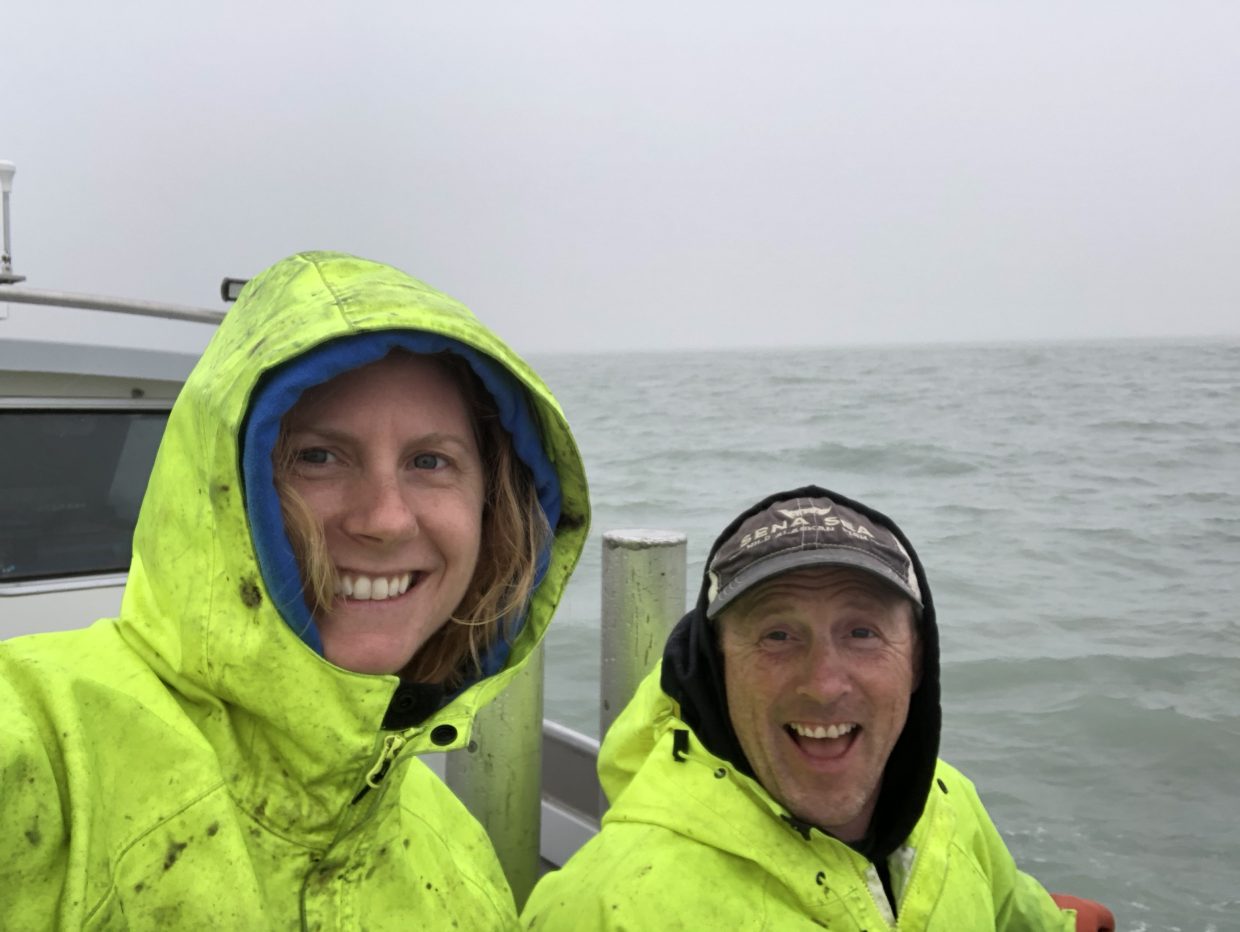“Every year we take the kids to a glacier up in Alaska. We witnessed it march back and where the edge used to meet the land, it is now water,” Sena Wheeler tells with tears in her eyes. That was the moment that Sena – coming from a fisher family – decided to become partners with ‘The Copper River Watershed Project’. This project was born of deep concern for the region’s resources and the economies dependent on those resources. Sena has been contributing to the sustainable economic development of this Alaskan region with her family business ‘Sena Sea’ all along as well. How is Sena using her company as a force of good?
Sena’s grandfather and his father – who lived up to 100 years – were fishermen in Norway. Sena’s grandfather and his brothers moved to the US in 1938 and started fishing in Alaska. It was one of his daughters – Sena’s mother – who carried on the business together with her husband. Sena would be out for weeks on ‘the longliner’ with her family during the summer holidays. “I learned all the jobs.” Later on Sena’s husband Rich started fishing together with Sena’s dad. Now Rich and Sena spend the summers with their three children on ‘Sena Sea’s’ salmon boat named ‘Miss CamiLou’, after their daughters. Sena has a master’s degree in Nutrition and Food Science with a specialty in quantifying omega 3’s in fish, and determining preferred handling practices for premium quality.
From ‘Derby days’ to sustainability management
Sena Sea is operating from Cordova, Alaska, a community of 283.000 people, of whom the majority earns a living with fishing. King crab, Copper river salmon, Halibut, Black cod, Rock fish; the region is rich in fish. A delicate ecosystem, which is thriving under tight rules and regulations: “The state of Alaska has sustainability in its constitution,” Sena explains, “and fish farming is illegal. When you look back in our generational history you see huge changes in sustainability management. My grandfather had a big boat in the seventies. There were hardly any regulations as to when to catch the fish. He would fish nine months per year, a month at a time, loading the whole boat full. In the eighties the industry was regulated, you would have two weeks to catch a certain fish. By the end of that decade it was only 48 hours, which was very stressful! Fishermen would go out even in bad weather, just to be able to feed their family. They weren’t able to take good care of the fish. We would call them ‘Derby days’.”
Positive changes for fisher families and fish stock
“My dad was involved in the lobby to improve the system,” Sena continues. “Now we have fishing quota per year. Everyone gets to fish a certain percentage of ‘the pie’. This meant a big change to the fishing life style: fishermen get to sleep now! A positive change for fisher families and for the fish stock. We are having a really good black cod season right now, better than we’ve seen in at least 10 years. Also the industry made an enormous development with icing. We now put our fish immediately on ice and won’t leave them flapping on the deck.” This is a more animal friendly way of handling the fish, and the quality of the fish stays better: “The flapping stresses the fish out which makes its temperature rise and creates lactic acid.”
Collaboration with fellow fishermen and traceability of fish
The fact that Sena and her family are also running a processing facility in Cordova – ’60° North Seafoods’ – contributes to the right handling of the fish: “Processing plants are key,” Sena explains. “Granddad and dad used to deliver at the dock where all fish was combined. This was less rewarding for the individual fisherman, since extra good quality wasn’t noticed. Rich used to deliver to a small plant that became for sale. We got the opportunity to buy the plant with help from investors, of whom the majority are other fishermen from the community. Rich does most of the fishing for Sena Sea, and we also source from fellow fishermen who share our commitment to sustainability. At our plant we specialize in premium quality and traceability. This means the fish never leaves our hands and we have complete control of our entire process. Year round we offer jobs to four people, besides that we have ten to twenty workers coming in for the season, which runs from April to October.”
Doing more with less, serving the community towards the future
With ‘Sena Sea’ and ’60° North Seafoods’ Sena and her family contribute to making the fishing industry sustainable, providing decent jobs to fellow fishermen, making the community cyclical: “At our plant we can do things they can’t do at big facilities. We use the collars of the fish and the meat from the back bone of the salmon for instance to make our invention ‘chop’ which we process into patties. I believe that is future thinking: do more with less. Catching fewer fish and utilize more of the fish. Doing net recycling. Also I’m a strong believer in working together, with other fishers, and with other agencies such as ‘The Copper River Watershed Project’. Fishermen see a lot, they can tell by the size of the fish how the climate situation is. We are not against nature. We are a generational fisher family, we fish for future generations,” Sena concludes with humble pride.
Interviewer and writer: Lisa Koolhoven
